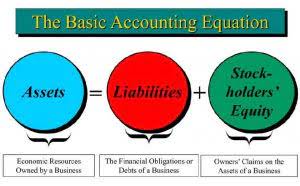Budget vs Forecast: Key Differences to Know

A financial plan is a strategic, long-term tool, while a budget is tactical and short-term. In a way, the forecast bridges the gap between the business plan and the budget. Because an organization’s future is undefined, financial planning is a perpetual process.
Budgeting Vs Forecasting: What’s the Difference?

You’re just breaking up the larger picture into bite-sized pieces that are easier to generate. While budgeting and forecasting serve different purposes, a business requires both for a sound financial plan. While creating https://www.bookstime.com/ your financial forecasts, be it for the short or long term, prepare for worst, best, and working case scenarios. Once your budget is set in stone, you need something more practical and adaptive to work with.
- These dashboards present information visually, letting you make smart decisions through better insights into your financial efficiency and other metrics.
- Perhaps you don’t bring your work laptop, but then discover that on the beach, we’re meeting with several high-profile investors.
- There would be variances and only a performance review can show whether the goal you set was met or not.
- A forecast may be for a long-term or short-term period or using the top-down or bottom-up approach.
- Improving your ability to make financial assumptions over time will help you create more accurate projections.
- Budgeting creates a baseline to compare actual results to determine how the results vary from the expected performance.
- However, as you prepare a detailed financial outline, you know what is achievable.
What are the types of forecasting?
Or, if an economic downturn occurs, and the business must determine how it will respond to survive, what changes will it have to make? A financial forecast is a tool for building these financial scenarios based on desired outcomes. The importance of budgeting and forecasting in project management cannot be emphasized enough. While budgeting empowers companies to understand their financial goals, forecasting helps them analyze how many of these goals are achievable. Budgeting refers to projecting the revenues and costs of the company for the future specific period that the business wants to achieve.

What Are The Types of Forecasting?

Alternatively, if you predict a more modest cash flow in your projections, you can save it. An income statement shows your revenue, expenses, and profit for a certain period. Patterns in these elements will help you understand what you can expect your future budget vs forecast vs projection revenue, expenses, and profit to look like. Let’s say you want to forecast your gross margins for the remainder of the year. You’ll evaluate the gross margin percentage for the last several quarters, looking for patterns, seasonality, and trends.
If you’re using incorrect data in your forecasts, you won’t get much value from them. If you want to explore more complex forecasting methods (such as regression), then using sales forecasting software can streamline and automate the process. You can update the remaining predictions (May through December) to reflect 3% MoM growth and see what that does to your total revenue projection. To forecast this year’s revenue, gather information about your previous performance and make assumptions. Generally, a financial “plan” aims to define the financial direction and vision of the organization within the context of a broader business plan.

Both techniques are essential and form an integral part of the short term and long term decision making. For example, if budgets are not formulated, the company may become directionless. At the same time, if forecasting is not conducted, there can be a chance of oversight and piling up of wrong decisions and inaction. A long-term forecast will provide valuable output to the management for their strategic business plan. In contrast, short term forecast is generally is done for operational and day to day business needs.
- Budgeting provides a roadmap for allocating resources and managing cash flow, while forecasting enables businesses to anticipate market conditions and make proactive decisions.
- Tools like Upmetrics can help you prepare highly detailed and visual financial forecasts for up to 7 years with utmost ease.
- Because an organization’s future is undefined, financial planning is a perpetual process.
- This forecast would offer insights into potential market expansion and consumer demand shifts.
- Regardless of your business’s industry or stage, it’s important to maintain a forward-thinking mindset—learning from past patterns is an excellent way to plan for the future.
Drive Business Performance With Datarails
It’s a method for finance teams to predict future performance and guide strategic planning, budgeting, and resource allocation across the organization. Financial forecasting is predicting a company’s financial future by examining historical performance data, such as revenue, cash flow, expenses, or sales. This involves guesswork and assumptions, as many unforeseen factors can influence business performance.

What Are the Different Types of Budgets?
- For example, if the previous year’s growth rate was 12 percent, straight-line forecasting assumes it’ll continue to grow by 12 percent next year.
- The forecast is normally prepared annually and often updated monthly with actual results, providing a rolling forecast to continually update management as to where the business is heading.
- Quickly surface insights, drive strategic decisions, and help the business stay on track.
- At the end of the period, budgets are evaluated by comparing the set financial goals with actual performance.
- Externally, pro forma statements can demonstrate the risk of investing in a business.
- Forecasts are updated periodically to ensure the business is working with the most accurate data possible.
- If your predictions show that you will have excess cash flow, you can invest some of that revenue and increase your cash reserves even more.

Commenti recenti